
A Transformative Force: Why Artificial Intelligence in Media Demands Your Attention Now
Artificial intelligence in media is reshaping the very fabric of media and entertainment as we know it. Not long ago, storylines and news reports relied heavily on manual research, human creativity, and time-intensive editing . Today, the fusion of advanced AI tech and machine learning algorithms is orchestrating a paradigm shift, revolutionizing both content creation and distribution at an unprecedented scale. From curating personalized recommendations on streaming platforms to automating routine tasks in newsrooms and film studios, AI applications now touch almost every facet of the industry.
The need to understand this transformation isn’t just about staying up to date – it’s about staying ahead. As AI tools rapidly mature, they're amplifying human work by unlocking new creative frontiers and automating menial tasks. The impact of AI in media and the entertainment industry is massive, promising enhanced user experience , groundbreaking creative formats, and, of course, bold new ethical frontiers. The convergence of AI, natural language processing, and big data sets presents an exciting—but at times controversial—future that every stakeholder in the media industry must confront today.
Startling Statistics: How Artificial Intelligence Is Taking Over Media and Entertainment
Consider this: More than half of publishers and broadcasters are already leveraging some form of artificial intelligence for media content generation , automated video editing , and news personalization. Machine learning empowers platforms to sift through vast user data sets, delivering content that matches not only our preferences, but also our moods and habits—so effectively, in fact, that some question where the line between authentic storytelling and algorithmic tailoring should be drawn.
"By 2025, over 90% of all digital content may be generated or influenced by AI, fundamentally transforming the media industry."
The numbers don’t lie: Generative AI is being integrated into everything from feature film production to headline newsfeeds, transforming both creation and consumption. For creators and audiences alike, the question is rapidly shifting from “will AI impact the media industry?” to “how can we thrive alongside it?”
What This Article Unveils About Artificial Intelligence in Media
- Explore major breakthroughs of artificial intelligence in media and entertainment
- Understand the role of AI in content creation, video editing, and music composition in the entertainment industry
- Evaluate the impact of generative AI, social media, and ethics on the media industry
- Get expert insights on the future of AI in media
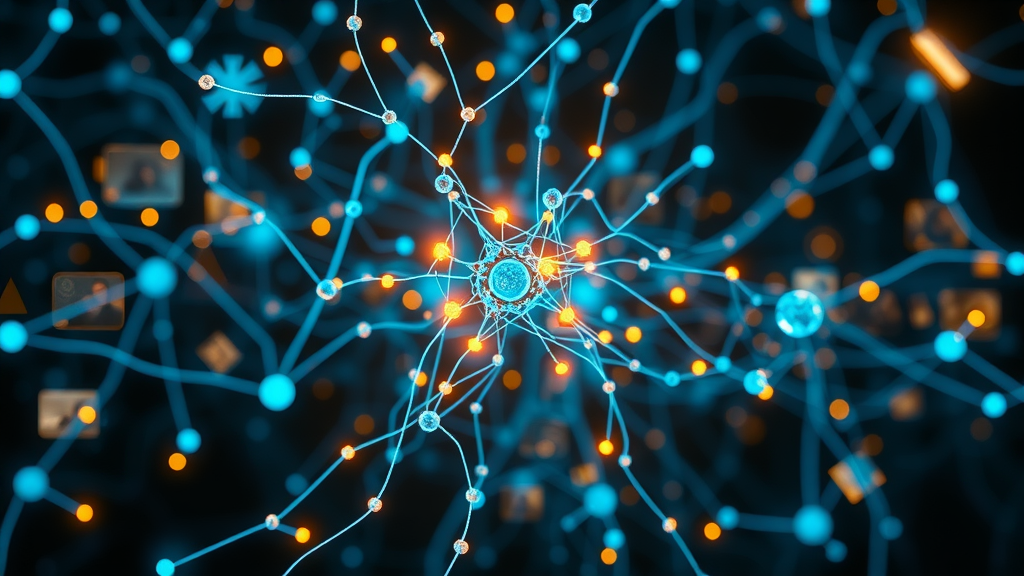
The Evolution of Artificial Intelligence in Media and Entertainment
From Manual to Machine Learning: Media Content Revolution
The journey of artificial intelligence in media has been nothing short of dramatic. In the early 2000s, creating and distributing media content was laborious, involving armies of journalists, editors, and technicians. Today’s machine learning models process enormous data sets to automate everything from script analysis to real-time fact-checking. Studios and publishers now rely on AI systems to extrapolate audience insights, automate content recommendations , and even generate trailers and teaser clips autonomously.
This revolution extends beyond automation: Generative AI algorithms can now collaborate with human writers, designers, and editors in previously unimaginable ways. Where a human editor might spend hours trimming a segment, an AI-driven tool can scan, cut, and reorganize footage in minutes, all while predicting the optimal layout for maximum viewer engagement. Such efficiency doesn’t just streamline workflows—it sets the stage for bold creative experimentation and new forms of user-focused storytelling.
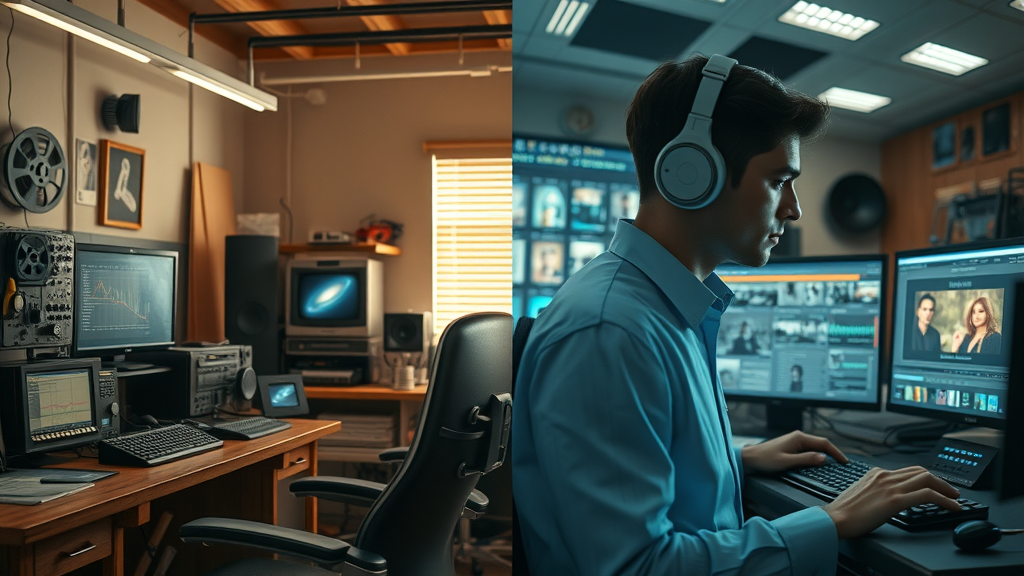
Key Milestones: AI in the Entertainment Industry Timeline
| Year | AI Breakthrough | Impact on Media & Entertainment |
|---|---|---|
| 2010 | Machine learning in recommendations | Personalized content suggestions on platforms |
| 2017 | Generative AI for content creation | Automated video, music, text, and image generation |
| 2020 | Deepfake technology emerges | Raises questions of authenticity and trust |
| 2023 | AI-driven film and animation | Major studios integrate AI into production |
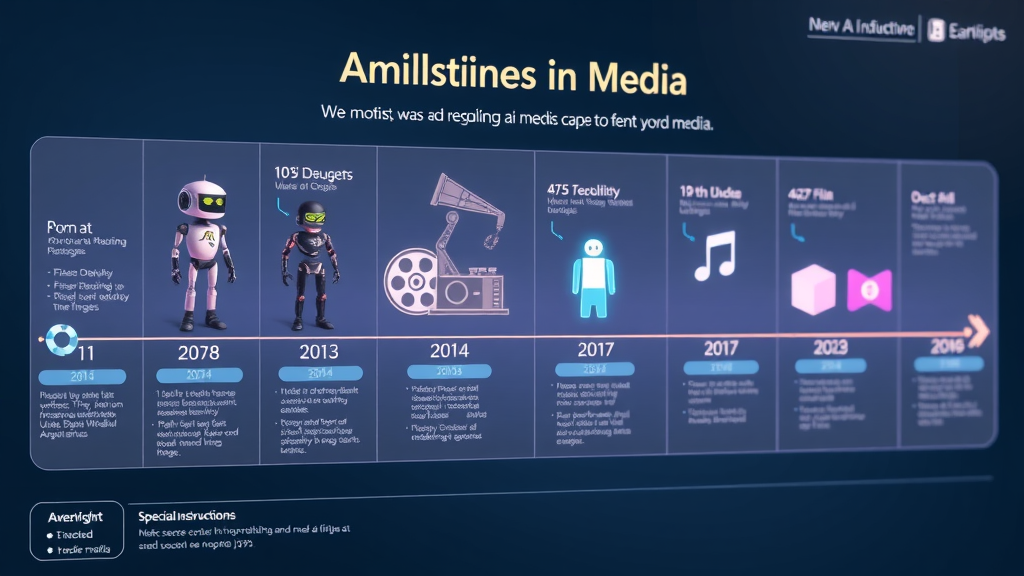
How Artificial Intelligence Is Used in Media and Entertainment Today
AI in Media Content Creation: Narrative, Scripts, and Journalism
Perhaps the most profound shift wrought by artificial intelligence in media is in how content creation unfolds. Newsrooms deploy AI tools that rapidly sift through incoming reports, flagging relevant stories and even composing first drafts of articles. Scriptwriters in the entertainment industry are already co-authoring with AI, leveraging natural language models to craft creative dialogue, fill narrative gaps, and generate powerful story arcs. These systems are trained on massive data sets , learning what resonates with viewers across history and culture.
In journalism, AI applications are transforming fact-checking, source cross-validation, and even headline optimization for search engines and social networks. Media organizations are integrating algorithms that can adapt style and tone to suit varied audiences on different media platforms . This heightened responsiveness enables outlets to keep up with a fast-moving media landscape and deliver more relevant, credible, and engaging stories.
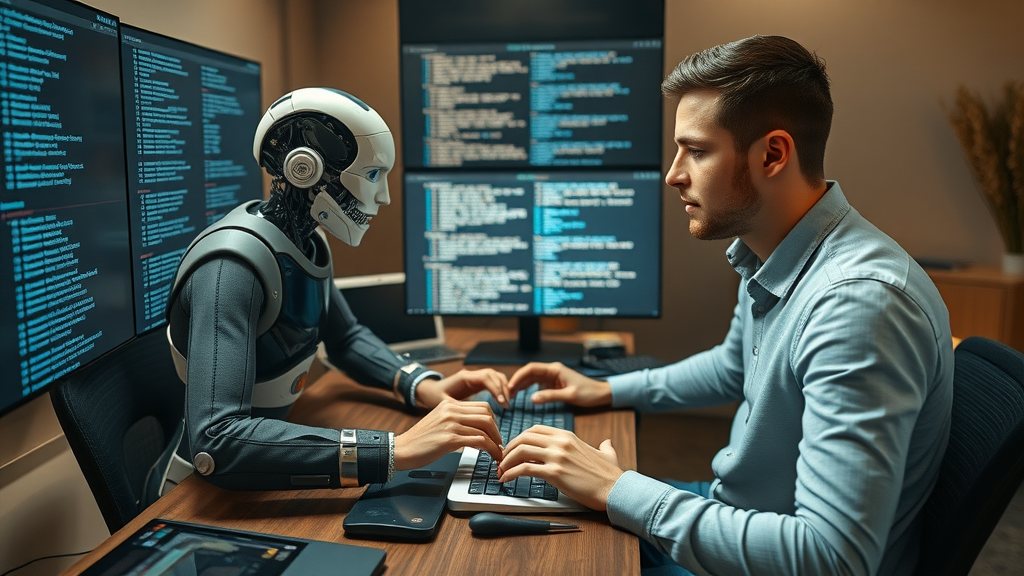
Generative AI in Video Editing, Visual Effects, and Animation
Modern video editing has undergone a seismic transformation through generative AI . In the past, editors spent countless hours reviewing footage, making frame-by-frame tweaks, and meticulously applying effects. Today, AI-powered video tools automate much of this process, dynamically selecting the best takes, adjusting color grading, and syncing soundtracks. AI systems leverage user data and training data to anticipate audience preferences, ensuring that each cut maximizes impact and engagement.
Visual effects and animation studios are now experimenting with AI-driven character modeling, lip-syncing, and even style transfer—making animated productions not only more lifelike, but also more cost-effective. These advancements empower media content creators to release new work faster and with fewer human errors, triggering a creative renaissance across genres and formats in media and entertainment.
Music Composition and Sound Design in the AI Era
Music composition and sound design are also being dramatically reimagined by artificial intelligence in media. Sophisticated AI models analyze millions of tracks, identifying popular structures and harmonics, then generate original music that fits any desired mood. From commercials to critically acclaimed films, AI-generated scores inject fresh energy into the entertainment industry . Producers now routinely collaborate with AI tools, using algorithms that can suggest melodies, arrange beats, and even remix songs on demand.
This convergence of human creativity and machine efficiency allows sound designers to experiment at greater scale and with unprecedented speed. While some purists debate whether AI-generated music can truly be “art,” it’s clear that the boundary between composer and code is blurring fast, heralding new possibilities for immersive, personalized audio experiences.
"AI has already scripted commercials, composed film scores, and transformed post-production, proving its creative prowess."
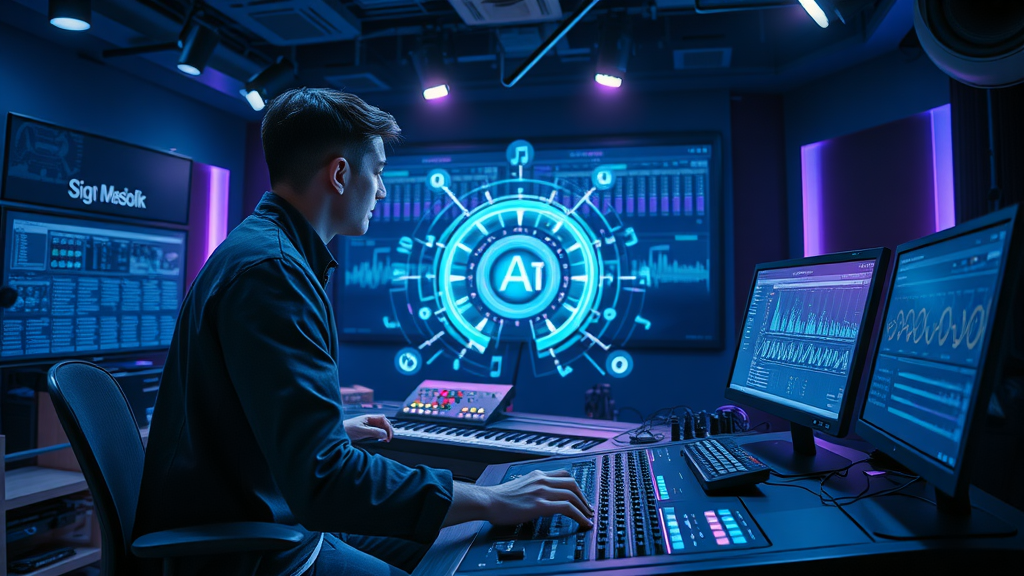
Machine Learning and Social Media: AI’s Impact on Media Industry Dynamics
Targeted Content Generation and Audience Engagement
Platforms powered by machine learning and artificial intelligence analyze streams of user data to produce targeted content that captivates social feeds. Rather than serving a generic audience, AI customizes posts, stories, and ads to suit individual tastes, behaviors, and even locations—resulting in higher engagement rates and longer sessions on media platforms . This continuous feedback loop is refined with every click, like, or share, making social media more addictive, influential, and data-driven than ever before.
However, this algorithmic curation raises concerns far beyond user convenience. With AI now shaping what millions see online, it wields enormous influence over popular opinion, news cycles, and even political outcomes. For the media industry , understanding the power and limitations of AI-driven content is essential to maintaining both relevance and credibility in the age of automation.
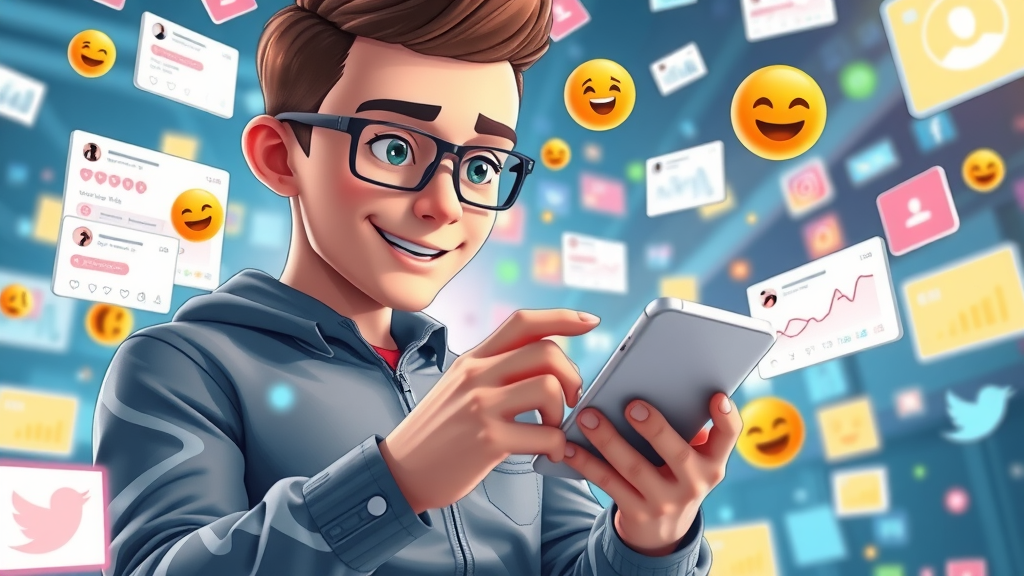
Artificial Intelligence in Media Advertising: Programmatic Buying & Personalization
Media advertising is another arena where AI in media is making waves. Programmatic advertising harnesses AI algorithms to buy, place, and optimize ads across media platforms in real time. The result? Brands now reach their desired audiences at the perfect moments—whether that’s users discovering a new show on a streaming platform or teens scrolling social media after school.
Moreover, AI’s ability to process immense quantities of user data and segment audiences leads to hyper-personalized marketing campaigns. This not only boosts conversion rates but also enhances the user experience , making advertising less intrusive and more relevant. As technology matures, ethical transparency and data governance will be essential to preserving trust in the evolving media and entertainment landscape.
The Promise and Pitfalls: Challenges of Artificial Intelligence in Media
Bias, Deepfakes, and Trust in the Entertainment Industry
While artificial intelligence in media brings profound benefits, it also introduces risks. Automated content generation can unintentionally perpetuate bias, especially when training data reflects historical inequities or prejudices. Media organizations must constantly audit their ai systems to ensure fair, balanced outputs. More alarmingly, the advent of deepfake technology challenges our fundamental trust in what we see and hear. AI-generated fake videos, photos, and audio clips can be indistinguishable from real ones—threatening individual reputations, journalistic credibility, and democracy as a whole.
These raises concerns about how quickly AI outpaces current regulations and ethical frameworks, making it crucial for the media industry to develop new protocols, detection tools, and transparent guidelines to safeguard authenticity while enabling creativity.
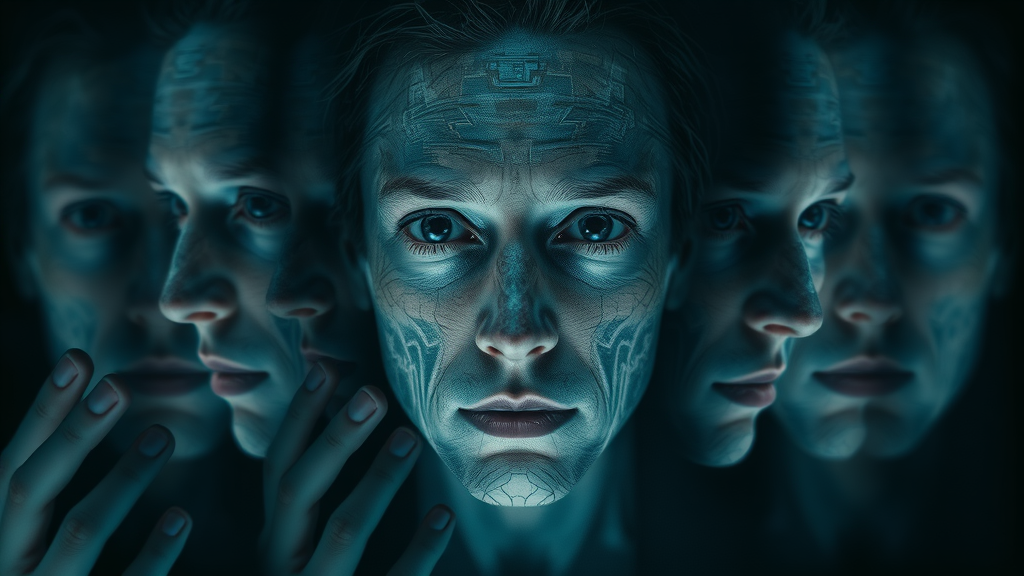
The Ethics of Generative AI and Content Creation
Content creation in the AI era is fraught with ethical dilemmas. Who owns an AI-generated script, song, or headline? How can creators and audiences distinguish between “real” and “machine-made” work? As generative AI permeates the media industry , these questions demand urgent answers—not only from technologists, but also from storytellers, regulators, and consumers.
Responsible AI stewardship means ensuring that ai in media amplifies human creativity, rather than replacing it outright. Maintaining transparency about AI-generated content, promoting digital literacy, and creating safeguards against manipulation are crucial to balancing innovation with responsibility.
How is Artificial Intelligence Used in Media?
Artificial intelligence in media is revolutionizing content creation, editing, personalization, and audience targeting. AI enables automated story writing, generates deepfake videos, assists in live broadcasts, and powers recommendation engines—changing the way stories are told and consumed.
Modern ai applications automate every phase of the production cycle—from scriptwriting and planning to on-air delivery. Editors use AI platforms to select user-generated content , cross-reference facts, and apply real-time image and audio corrections during live streams. Content recommendation engines powered by AI scan billions of data points, offering personalized recommendations that keep viewers engaged far longer than traditional TV programming ever could.
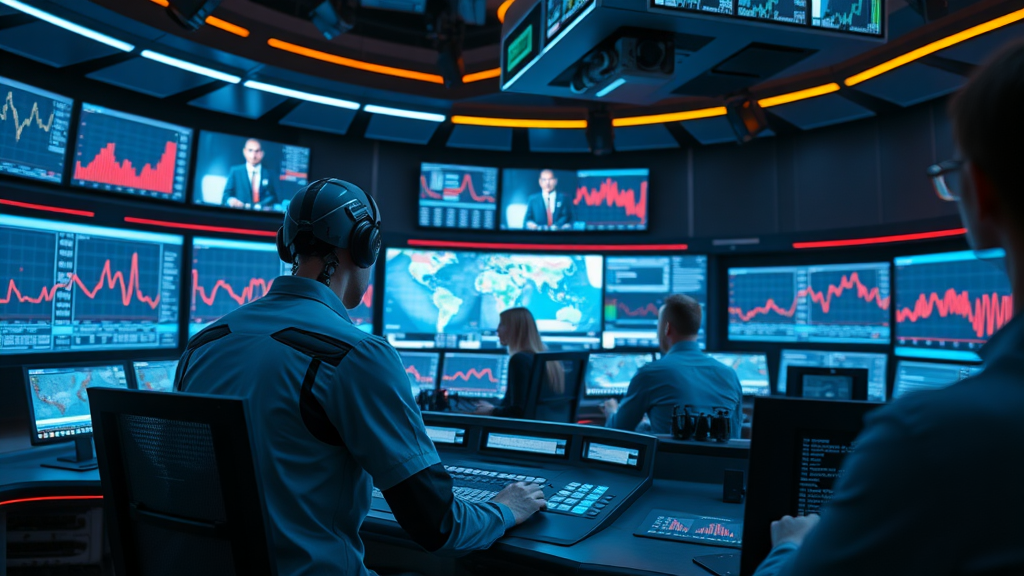
What is the Future of AI in Media?
The future of artificial intelligence in media foresees a blend of human creativity and AI efficiency, with generative AI producing hyper-personalized content and smarter distribution. Ethical governance and transparency will become crucial pillars as AI gains more influence in the media industry.
Tomorrow’s media landscape will be built on a seamless partnership between content creators and AI-driven systems. Audiences can expect stories tailored by their interests, interactive experiences powered by AI-generated visuals, and greater representation as algorithms learn to address historical biases. As this evolution accelerates, media professionals must collaborate across disciplines to craft new ethical standards that prioritize fairness, truthfulness, and creative freedom.
Ultimately, the narrative is clear: The integration of artificial intelligence in media is not a distant possibility—it's the inevitable next chapter in an ongoing transformation that everyone in the industry must help write.
How is Artificial Intelligence Changing the Media Industry?
Artificial intelligence is streamlining workflows, enabling real-time analysis, and facilitating content customization in the media industry. Its adoption is making media more interactive, immersive, and responsive—reshaping everything from journalism to blockbuster film production.
Gone are the days when editorial calendars and content distribution schedules were etched in stone. Today’s ai in media platforms adapt on-the-fly, using real-time data analysis to recalibrate everything from news curation to advertising placements. Major newsrooms and film studios embrace AI systems that optimize budgets, forecast box office trends, and even fine-tune messages for local or global audiences.
This real-time adaptability not only drives efficiency but also makes media and entertainment more accessible, diverse, and vibrant. Whether it’s a journalist chasing a breaking story or a studio creating immersive AR experiences, artificial intelligence is the engine behind the new, dynamic media ecosystem.
How is AI Used in Digital Media?
AI powers tools that automate video editing, enhance user-generated content, provide real-time translation and captioning, and manage copyright compliance in digital media. These advancements boost efficiency and innovation throughout the digital media landscape.
Digital creators rely on AI tools to automate labor-intensive processes and improve accessibility. For example, AI-driven video editing software can instantly identify highlights for social sharing, while natural language models generate instant translations and subtitles, making global content more inclusive. Intellectual property management is also streamlined, with AI platforms flagging possible copyright infringements across expansive media content libraries.
The result is a richer, more participatory media landscape —one where creators and audiences alike benefit from faster production cycles, more accurate localization, and increased creative freedom born from technological innovation.
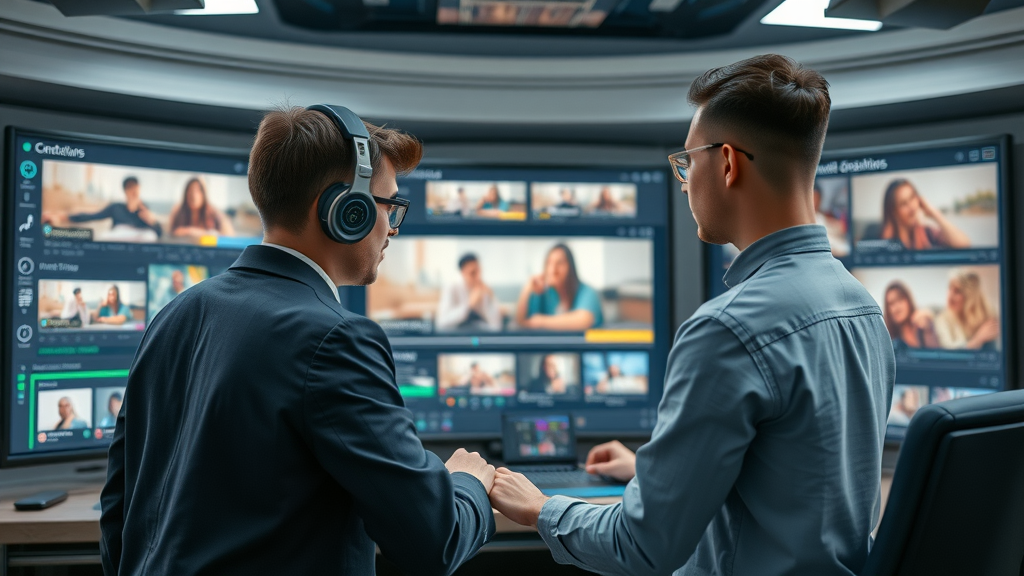
Debate and Dialogue: Industry Expert Quotes on Artificial Intelligence in Media
"Generative AI is not just a tool; it's becoming a creative partner for storytellers and content creators in media and entertainment." – Media Futurist
"As artificial intelligence in media advances, the balance between automation and authentic storytelling becomes more critical than ever." – Leading Entertainment Journalist
FAQs on Artificial Intelligence in the Media Industry
- Will AI take over human creativity in the entertainment industry? While AI is rapidly advancing, its role remains collaborative. Human intuition, emotion, and experience are irreplaceable, but AI augments creativity by automating routine tasks and suggesting innovative directions. Creators who learn to leverage AI will expand their creative potential rather than be replaced.
- How can traditional media professionals adapt to AI-powered content generation? Upskilling in AI literacy, collaborating with AI tools, and focusing on unique human strengths—like critical analysis and emotional storytelling—are vital. Embracing lifelong learning and experimenting with new technologies will help professionals stay relevant in an evolving landscape.
- What safeguards exist against deepfakes in media content? Industry leaders are investing in deepfake detection tools, transparent labeling, and AI watermarking to combat misinformation. Effective safeguards also include regulatory oversight, team training, and digital literacy initiatives for both creators and audiences.
- How does machine learning improve media personalization? Machine learning analyzes user data to recommend content tailored to individual tastes, behaviors, and even real-time situations. These personalized recommendations improve user engagement and content relevance, enhancing the overall user experience .
Essential Considerations for Embracing Artificial Intelligence in Media
- Stay informed about AI ethics, regulations, and governance
- Prioritize transparency in content generated by AI
- Encourage collaboration between human creators and AI algorithms
- Embrace upskilling to remain relevant in an AI-driven media environment
Key Takeaways: The Role of Artificial Intelligence in Media and Entertainment
- Artificial intelligence in media is revolutionizing how stories are created, consumed, and distributed
- Generative AI accelerates creative processes but introduces ethical and authenticity challenges
- Professionals must adapt quickly to harness AI's full potential in the media industry
Seize the Future: Why Now Is the Time to Embrace Artificial Intelligence in Media
To shape a vibrant and responsible future, media professionals and audiences alike must actively engage, adapt, and drive forward the intelligent transformation of media and entertainment.
Artificial intelligence (AI) is profoundly transforming the media and entertainment industry, enhancing content creation, personalization, and operational efficiency. For instance, AI-driven tools are automating video editing processes, enabling faster production without compromising quality. ( aiplusinfo.com ) Additionally, AI algorithms are revolutionizing music composition by generating original scores that align with specific themes, thereby reducing the time and resources traditionally required for music production. ( symphonyai.com ) These advancements not only streamline workflows but also open new creative possibilities for media professionals.
 Add Row
Add Row  Add
Add 


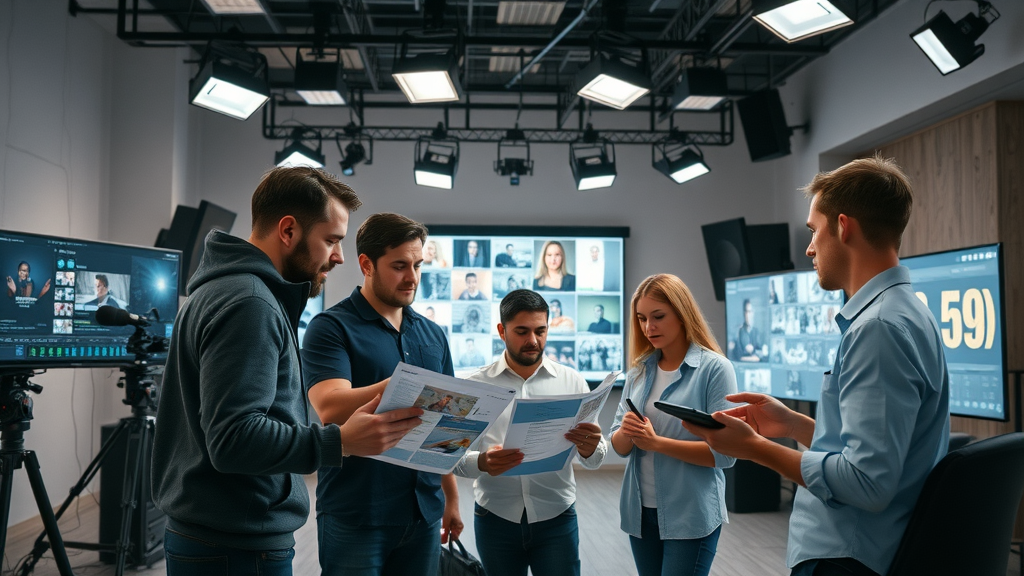
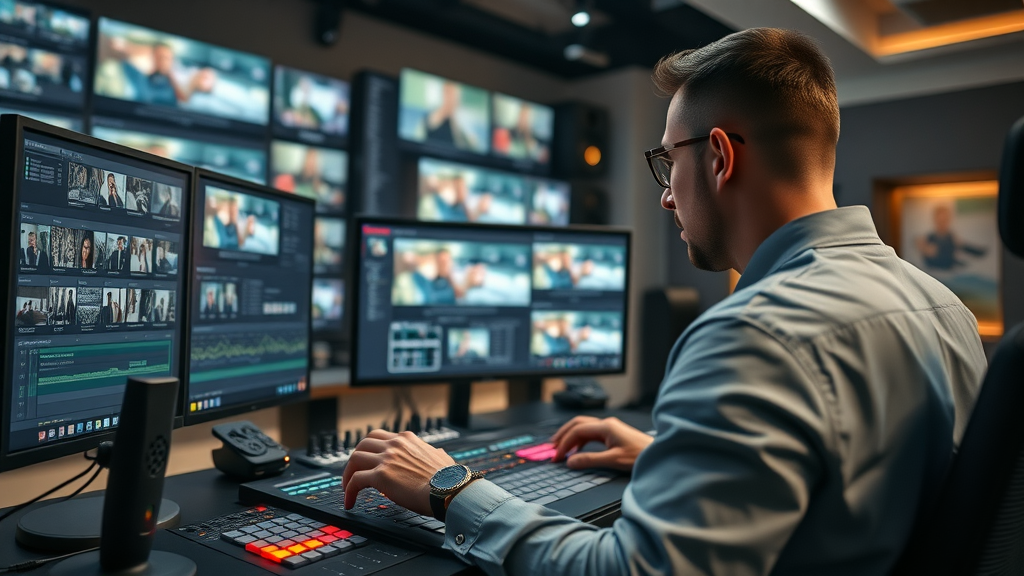
Write A Comment